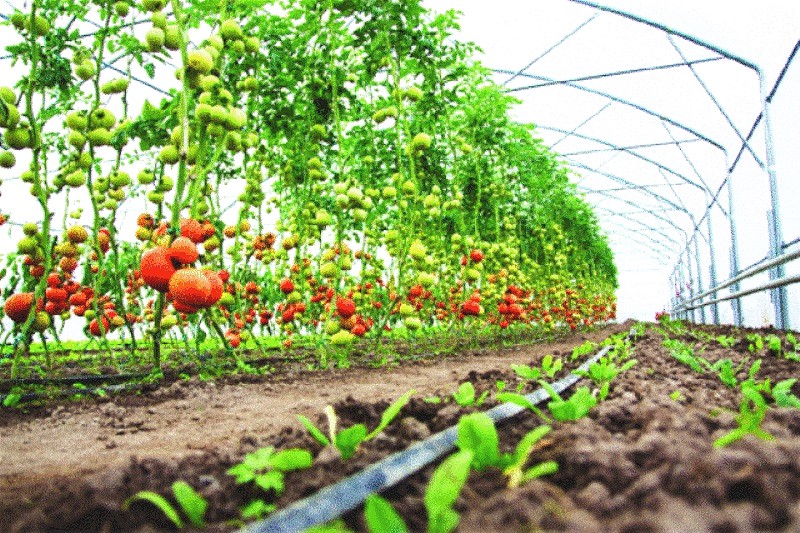The Parliamentary Budget Committee has vowed to support a multi-million-dollar horticulture industry to grow through friendly and consistent policies. Currently, the industry earns the economy over 779 million US Dollars (about 1,8tri) annually, up from 100 million US Dollars (about 232bn/-) in 2004, making horticulture a nascent enterprise and creates jobs, wealth and health in the country.
In its familiarisation tour at Tanzania Horticulture Association (TAHA) sites and several high values crop farms in the slopes of Mount Meru, the Committee announced to throw its weight to support the key industry to spur the economic growth. 'In recognition of horticulture as a key economic driving force, my committee will work with TAHA to address the policy - related challenges to allow the industry to grow by bounds and leaps," said the Budget Committee Chairman, Mr. Sillo Baran.
Mr. Sillo, who doubles as a Member of Parliament for Babati Rural, extolled TAHA for a job well done, in terms of nurturing the horticulture industry from scratch to an economic giant at the moment. In his remarks, the Committee Vice-Chairman, Mr. Omar Kigua implored TAHA to prepare a detailed proposal outlining a package of steps required to unleash the industry's enormous potential and the Committee will work on it.
"Since we have the upper-hand in prolific land, favorable climate and other key factors, TAHA should prepare a proposal that contains a roadmap and a package of measures perquisites for horticulture to grow. We will take it forward to realize the ambitious plan to open up the industry" said Mr. Kigua, who is also a Member of Parliament for Kilindi. In the last decade, the horticulture sub-sector has grown twice as fast as the rest of agricultural sector, thanks to painstaking efforts by TAHA and other partners that saw an increase in the production of fruits and vegetables, improved business environment and market access, among other factors.
However, TAHA Group CEO, Dr. Jacqueline Mkindi, said despite the huge potential of the horticulture industry, it is constrained by various challenges including poor transport networks, ineffective trade logistics, limited input supplies, post-harvest losses and limited market strategy and information gap. To unleash the full potential of horticulture, TAHA CEO said, the country ought to put in place a structure to realise five key drivers of horticulture transformation, namely market access, enhanced productivity, an enabling environment that supports innovation, capital access, or financial services and skills development.
She further said the industry needs favorable, predictable and consistent policies as well as incentives packages to woo new domestic and foreign investors and cater for the existing ones. "Horticultural productivity and trade competitiveness can be amplified by fast-tracking trade logistics, boosting investment in research and development, expanding production incentives to farmers and harnessing the benefits of increasing digitalisation of the industry," Dr. Mkindi told the Parliamentary Committee.
In terms of marketing access, for instance, Dr. Mkindi said TAHA in collaboration with the Government are making efforts for Tanzania's avocado and other high-value crops to access South African and Chinese niche markets. Dr. Mkindi said that efforts by TAHA in cooperation with the government are inching closer for Tanzania and South Africa to sign a bilateral agreement to allow local avocado to trade in the later's market.
In the same line, Tanzania and China is also close to signing a Memorandum of Understanding (MoU) on sanitary and phytosanitary measures to enable the export of avocados into China. "Avocado from Tanzania would soon be among the items eaten on the dining tables in China, as the country ups its game to unlock the multi-million dollar's Chinese market for local exporters," she noted.
China' soaring appetite for avocados, driven by demand from its burgeoning health-conscious middle-class, has made the butter fruit - unheard of a few years ago - the country' star performer in the imported fruit market. In fact, avocado fruit is becoming a status symbol among the 100 million Chinese middle class, with data indicates that Beijing imports 32,100 tonnes of avocado annually valued at 105 million US Dollars (about 232bn/-), offering a huge potential market for local growers.
"The process to sign the bilateral agreement is on high gear, we hope before the sun set this year, the deal will be sealed for our avocado to access Chinese market," Dr. Mkindi said, adding: "We are eyeing a lion share of the market value". TAHA working with the Government recently unlocked the Middle East markets, where orders for various horticultural produces valued at $7 million were secured.
